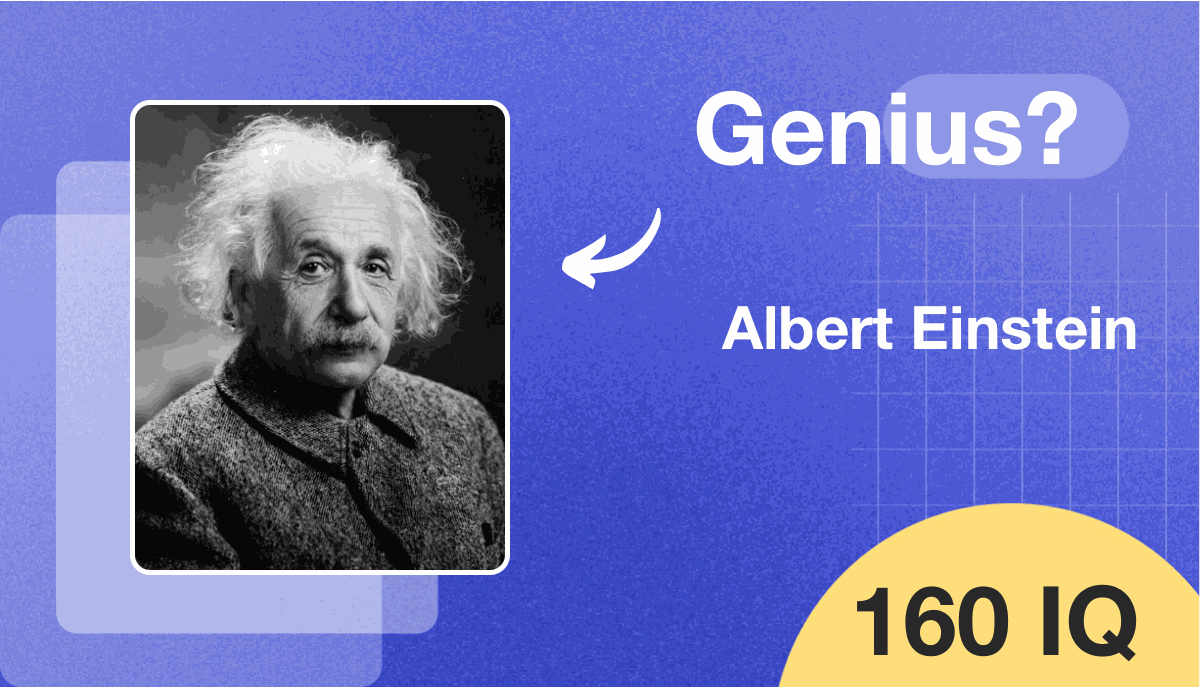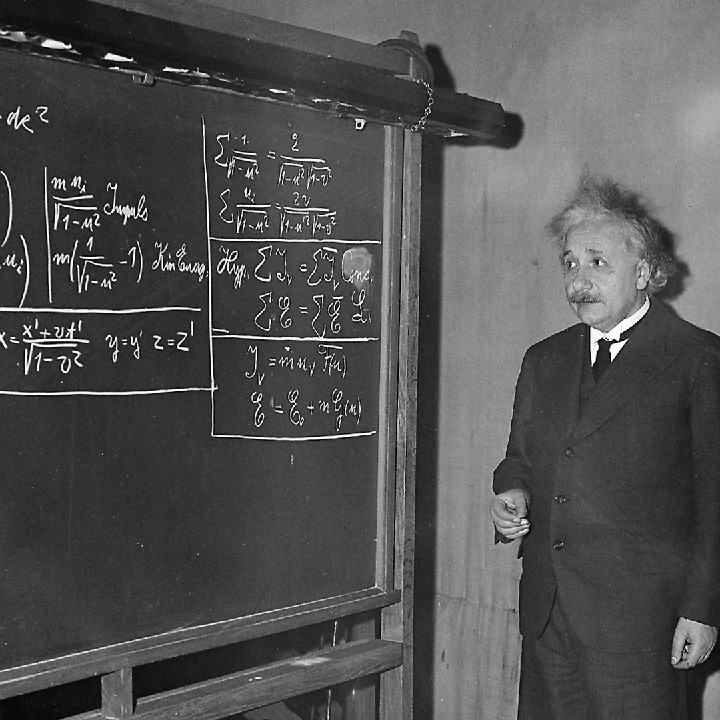Einstein's IQ: Decoding The Genius & His Legacy
What was the measure of the mind that reshaped our understanding of the universe? Albert Einstein's intellectual prowess, often quantified with an estimated IQ of 160, propelled him to the forefront of scientific thought and established him as a titan of the 20th century.
The quest to understand the inner workings of a genius is a compelling one, and the question of Albert Einstein's IQ frequently surfaces in discussions about his remarkable contributions to physics. While no formal IQ test existed during his lifetime, experts and historians have attempted to gauge his intellectual capacity based on his groundbreaking achievements. His formulation of the theory of relativity, which revolutionized our understanding of space, time, gravity, and the universe, is arguably his most significant contribution. Beyond this, Einstein's influence extended to quantum mechanics and other fields, solidifying his place as the most famous and influential physicist of the 20th century. His name has become synonymous with brilliance, and his theories continue to shape our understanding of the cosmos.
| Category | Details |
|---|---|
| Full Name | Albert Einstein |
| Born | March 14, 1879, in Ulm, Germany |
| Died | April 18, 1955 (aged 76) in Princeton, New Jersey, USA |
| Nationality | German-born; later Swiss and American |
| Education | Swiss Federal Polytechnic (ETH) Zurich |
| Fields of Study | Theoretical Physics |
| Notable Discoveries | Theory of Relativity (Special and General), Photoelectric Effect, Brownian Motion, Mass-Energy Equivalence (E=mc) |
| Awards | Nobel Prize in Physics (1921) for the Photoelectric Effect |
| Known For | Revolutionizing Physics, Intellectual Genius, Iconic Figure |
| Estimated IQ | Between 160 and 190 |
| Personality Traits (Reported) | A complex mix of introverted and extroverted tendencies, profound curiosity, strong moral convictions, and a deep sense of social justice. |
| Family Background | Secular Jewish parents. Moved to Munich in 1880. |
| Early Life Notes | Did not speak until the age of three, but brilliance became evident at an early age. Fascinated with puzzles and building structures as a child. |
| Legacy | One of the most influential scientists of the 20th century; his theories continue to shape our understanding of the universe; cultural icon. |
| Reference | NobelPrize.org |
Einstein's intellectual journey began in Ulm, Germany, where he was born in 1879. The family later moved to Munich, and in 1880, his father established a company, Elektrotechnische Fabrik J. Einstein & Cie, that manufactured electrical equipment. Early signs of genius were apparent, even though he didn't speak until the age of three. His fascination with puzzles and building structures signaled an extraordinary mind at work. Einstein's sister later spoke of how he dedicated hours to his work.
His academic journey included periods of advanced study in primary and secondary education. In 1999, Time magazine named Einstein the "Person of the Century," a testament to his enduring influence on the world. This recognition, along with phrases like "as smart as Einstein," underscores the deep impact of his intellectual achievements.
The theory of relativity, his most significant contribution, reshaped our understanding of gravity, space, and time. His renowned equation, E=mc, established the equivalence of mass and energy, a fundamental principle in physics. His papers on general relativity transformed the scientific world at the beginning of the 20th century. His findings on cosmology continue to impress physicists to this day.
While the precise number of Einstein's IQ remains an estimate, the consensus among experts places it somewhere between 160 and 190. This is based not just on his groundbreaking theoretical work, but also on his ability to think beyond conventional frameworks and challenge established scientific dogma. Such a high IQ is not merely a numerical value, it is a reflection of his extraordinary capacity for abstract thought, his rigorous mathematical abilities, and his unwavering commitment to intellectual inquiry. His ideas challenged the foundations of classical physics, leading to profound shifts in the way we perceive reality.
Einstein's intellectual curiosity extended beyond physics. He had a deep interest in social justice, morality, and the pursuit of happiness. His eloquent speeches touched upon various topics, making him a multifaceted figure who embodied both scientific brilliance and human compassion. His ability to connect seemingly disparate ideas and his profound understanding of the universe continue to inspire scientists, thinkers, and anyone who marvels at the beauty of the cosmos.
The iq test itself is not without its controversies. Many experts agree that attempts to pinpoint Einstein's IQ shouldn't overshadow his monumental achievements. Still, the exercise of assessing his intelligence allows us to understand the scope of his influence and to place in perspective the type of intellectual capacity that drove such revolutionary breakthroughs. His achievements in physics earned him the Nobel Prize, an award recognizing the profound significance of his discoveries.
As a theoretical physicist, Albert Einstein's influence on the 20th century is unparalleled. His groundbreaking work on the theory of relativity had an immense impact on modern physics, and the equation E = mc became a foundational principle. He also made key contributions to quantum mechanics. Einsteins work is a shining example of the power of human curiosity and intellectual rigor.
Einsteins life and work offer a glimpse into the power of a brilliant mind. While there is no official IQ number, his exceptional contributions to physics make it clear that he was one of the most intelligent individuals of all time. His intellectual achievements and his unique personalitya blend of introversion and extroversionhave made him an enduring figure, and his name has become synonymous with genius.
It is also important to note that the concept of IQ itself is not perfect. It is a snapshot of an individuals overall cognitive abilities compared to their peers. Its results should not be treated as the only measure of a persons capabilities or potential. Einstein's legacy, however, goes far beyond any numerical measure. The world remembers him as the father of relativity, a man whose intellect revolutionized our understanding of the universe.

Understanding Einstein IQ What It Means and How to Apply It Dong Ciskin

The Story Of Albert Einstein The Most Brilliant Mind The World Has

Einstein Iq